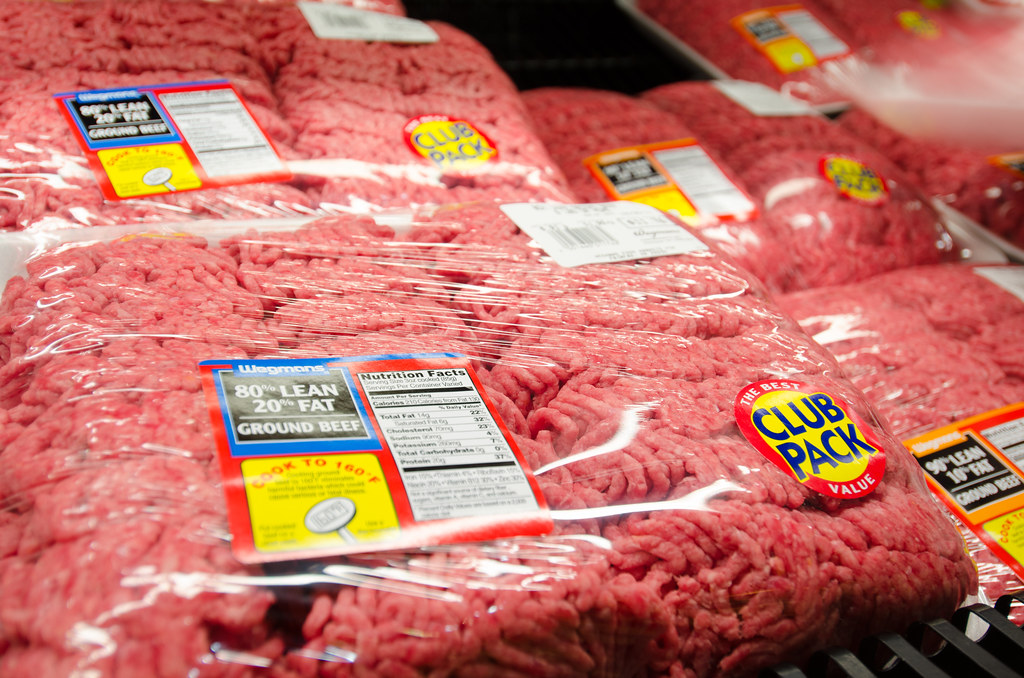The global shift towards veganism and #plantbased living has permeated all aspects of society, but unfortunately the beef industry has yet to feel the impact. As of 2009, about 35 million cattle were slaughtered annually in the U.S., which is equal to the population of Canada.

Four corporate giants process over 80% of all the beef that ends up on your grocery store shelf. This is killing small, independent farmers and affecting your pocket.
Beef-Packers?

Beef-packers slaughter and process beef they buy from farmers and feedlots. Since the 1980s, there has been a steady drop in the number of meatpackers in the U.S. This has given the beef-packers that remain tremendous market power since farmers have less options to sell to. This leverage has unsurprisingly driven down the price of cattle.
Monopoly

It is a struggle for farmers to bargain for a fair price, and nearly impossible to make a living from. As the number of cattle producers has fallen steadily, the power of the few left has ballooned.
Adding to these woes has been the expansion by beef-packing companies into the cow-calf production and feeding stages. Essentially, they’re controlling all stages of the food chain.
Ultimately, this is not a new phenomenon. In 1919, the Federal Trade Commission reported the same problem. The mergers of the 1980s simply mark the most recent wave in a long history of beef-packer monopoly. Only this time, it is much worse. The continuing consolidation is reducing the pressure to pay high prices for cattle.

Who Is The Winner?

Who is the player profiting from all of this? The beef-packing firms. A 2007 study by the University of Oklahoma found that as mergers increased, meatpacker consolidation and the number of bidding packers fell, and the prices cattle operators received fell by as much as $9.39 per 100 pounds.
As the gap between what consumers pay for beef and what producers earn for cattle continues to widen, little of the grocery dollars filter back to farmers. The four beef giants have been able to capture more than half of all earnings in the beef cattle sector, all while lowering the earnings of cattle producers by 31%.
Why is This A Problem?

The farming industry is already a volatile marketplace. This monopoly makes it even harder for farmers to predict the price they will earn for their beef. You do not need to be an economist to see that this isn’t a level playing field.
For example, if the price for cattle is high on a particular day, beef-packers can choose to slaughter their own cattle, and when prices are low they can purchase at auctions from independent farmers and ranchers. These practices drive down prices for independent farmers when there are few buyers competing for their beef.
This Affects You, Too

Firstly, it affects the price you pay for beef. Beef-packing firms can and are manipulating the price you pay for beef in the supermarket. You may think these large companies have little impact on your life, but the opposite is true.

Secondly, and perhaps more important, is food safety. Since 80% of all beef processed is handled by so few companies, the potential for regional or even national outbreaks is increased.
What You Can Do
Red-meat fans have a few options available to reduce the risks associated with eating beef. You can ask for well-done burgers at restaurants and purchase more sustainably raised beef during your next grocery shopping trip. Or you could just go vegan…
Alternatively, try to eat less ground beef and instead eat more whole cuts like steaks and roasts. Since bacteria tend to exist only on the surface of these cuts, as opposed to throughout mixed ground beef products, the cooking process is more likely to remove all of them.

Beef-packing firms are only one player in a complicated web affecting the farmers’ declining income. In December 2016, the USDA’s Grain Inspection, Packers and Stockyards Administration (GIPSA) released the long-awaited Farmer Fair Practices Rules. These define what constitutes unfair practices and undue preferences in farming.
The rules represent the first steps in the right direction, but so much more must be done if farmers are to have a fighting chance. We must change this.



